June Policy Updates: Supreme Court Rules on ICWA, Federal Updates, and Upcoming Events
Welcome to the June edition of our monthly policy newsletter, delivering the latest updates and insights on key developments.
(ICWA) Upheld in a 7-2 Supreme Court decision
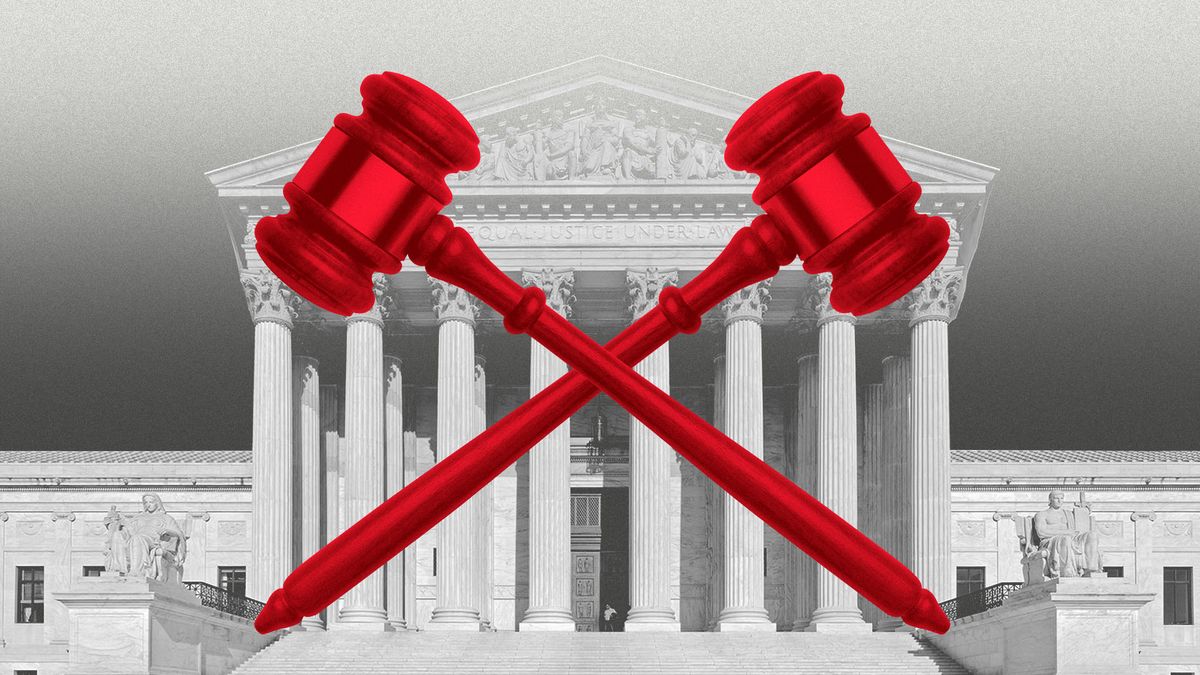
Haaland v. Brackeen (ICWA)
“ICWA was enacted over 40 years ago to protect the best interests of Native children, by keeping them with their families and communities, and promote the stability and security of Tribes and Native families. ICWA requires state courts to respect Tribal sovereignty and to account for a child’s culture and community in child welfare proceedings. Today’s decision is a major win for all of Indian Country because it ensures that these protections remain in place. We applaud the tireless efforts of the Stand with ICWA campaign and the countless advocates who joined to fight for our children and for tribal sovereignty,”
– NCUIH CEO Francys Crevier (Algonquin).
On June 15, ICWA was upheld in a 7-2 Supreme Court decision.
“But the bottom line is that we reject all of petitioners’ challenges to the statute, some on the merits and others for lack of standing,“ – Justice Amy Coney Barrett.
The Court held:
- ICWA is not beyond Congress’s constitutional powers to effectuate.
- ICWA does not violate the anti-commandeering clause by making states follow federal law.
- Neither the foster parents or the state of Texas had standing to bring the equal protection arguments related to the third placement preferences.
- They did not rule on any merits regarding equal protection and ICWA.
What does this mean for ICWA moving forward?
- ICWA continues to apply as it has prior to the Brackeen decision.
- Because the Equal Protection Issues were rejected on standing, they are not precluded from being addressed in a future case brought by parties with standing.
Other Supreme Court Updates
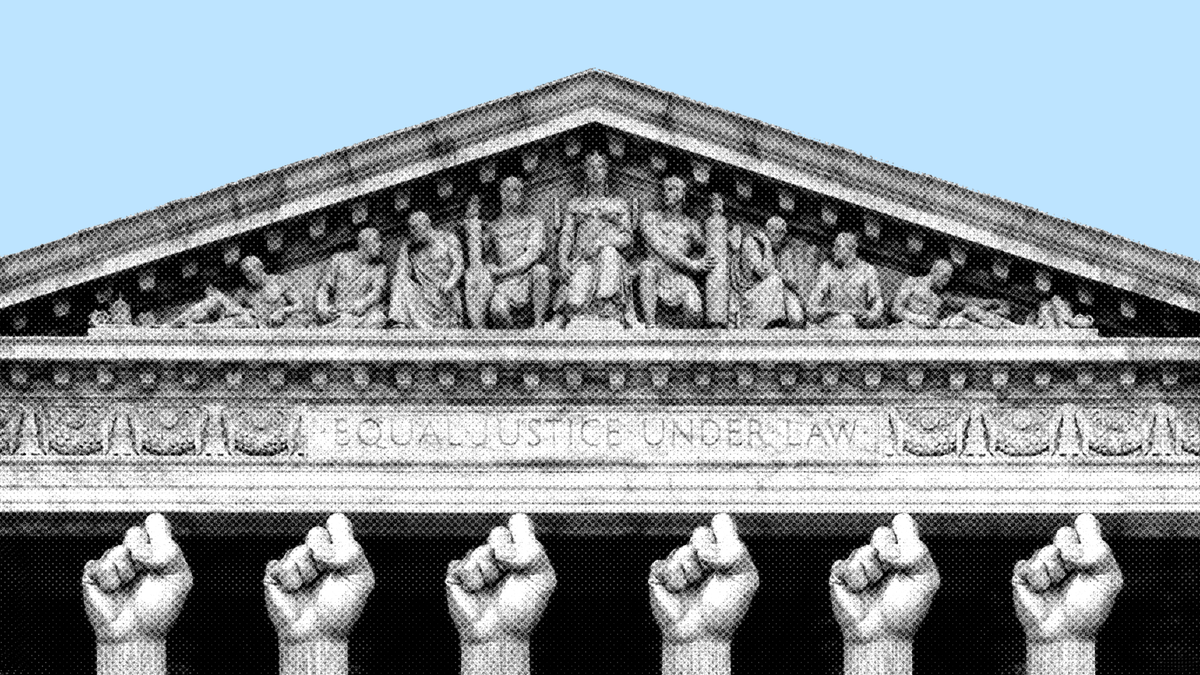
Other Supreme Court Updates:
1. Lac du Flambeau Band of Lake Superior Chippewa Indians v. Coughlin
- On June 15, the Court held in an 8-1 decision that the Bankruptcy Code abrogates Tribal Sovereign Immunity.
- “We conclude that the Bankruptcy Code unequivocally abrogates the sovereign immunity of any and every government that possesses the power to assert such immunity. Federally recognized tribes undeniably fit that description; therefore, the Code’s abrogation provision plainly applies to them as well.”
Why is this significant?
- This holding is a departure from previous Supreme Court precedent that required that Congress “unequivocally express” its intent to abrogate Tribal sovereign immunity in order for a statute to do so.
- This holding lowers the required standard for abrogation.
2. Health and Hospital Corporation of Marion County v. Talevski
Background:
- Court held in a 7-2 decision that private parties have the right to sue under Section 1983 when federally funded programs aren’t properly administered.
- Talevski raised concerns that the Court would overrule and change existing law relating to the ability to sue to enforce Spending Clause legislation under 42 U.S.C. §1983.
- The §1983 law at issue is the primary way community health centers, such as UIOs, sue to enforce Medicaid payment rights.
Why is this significant?
- Talevski’s holding ensures the preservation of federal Medicaid guarantees as privately enforceable legal rights.
3. Navajo Nation v. Department of Interior
- On June 22, the Court held in a 5-4 decision the United States owes no “affirmative duty” to the Navajo Nation to secure water.
- Court held that the 1868 treaty establishing the Navajo Reservation reserved necessary water to accomplish the purpose of the Navajo Reservation but did not require the United States to take affirmative steps to secure water for the Tribe.
Why is this significant?
- This means that the government does not have an enforceable trust responsibility to secure water for the Tribe under the Treaty.
- This holding places further limitations on the scope of the trust responsibility’s enforceability.
NCUIH Youth Council Meets with Rep. Sharice Davids
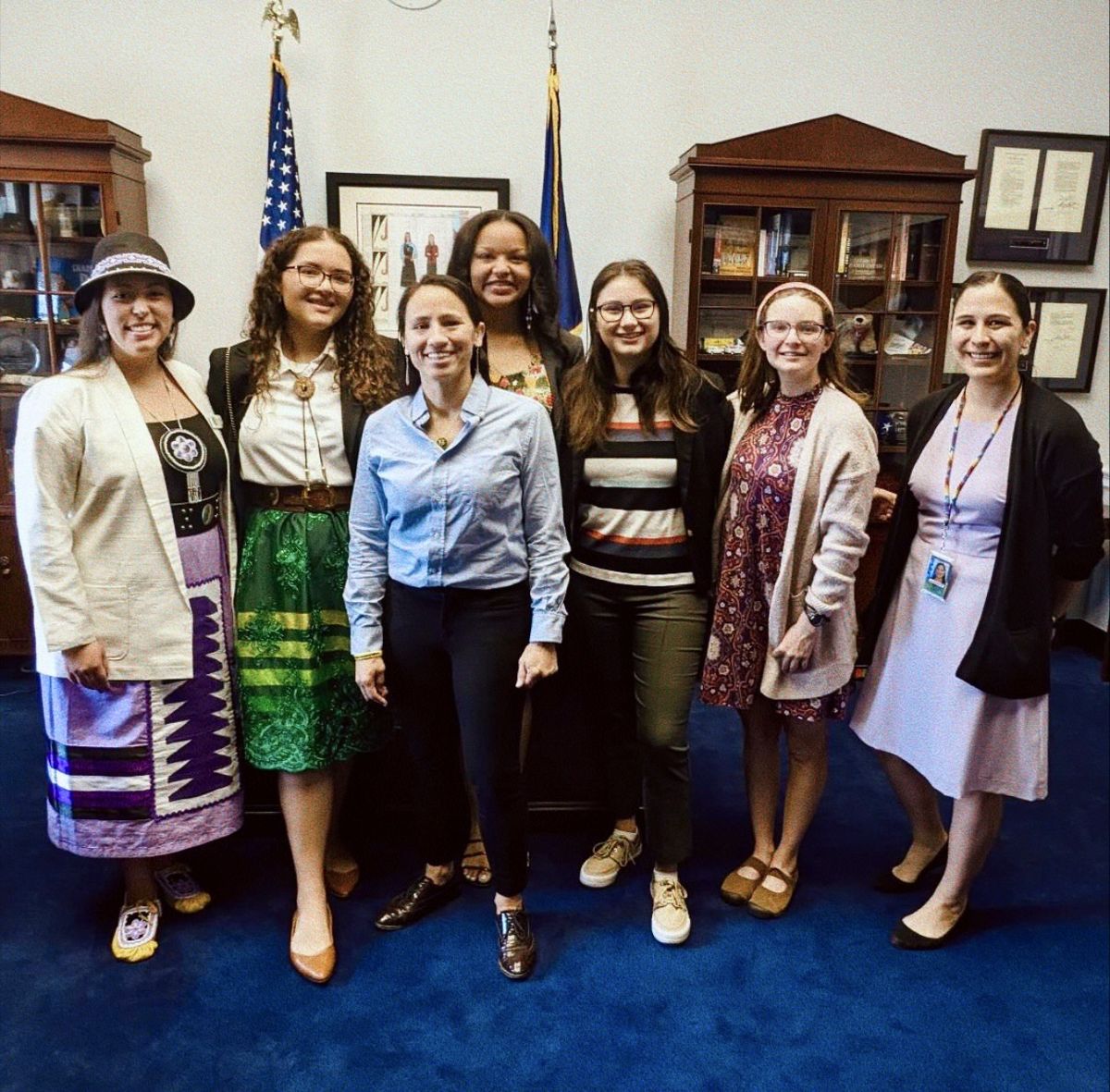
NCUIH Youth Council NCUIH Youth Council members and Representative Sharice Davids (D-KS)
During NCUIH’s annual conference last month, Youth Council members had the opportunity to visit Capitol Hill and meet with elected officials, including Representative Sharice Davids and Senator Tina Smith, to discuss matters dear to them such as voting and access to mental health resources.
“It was a great discussion because it helped me and my fellow council members realize how important representation of Native voices in government is,”
– Elinor Ascher Handlin, 2023 NCUIH Youth Council Member.
NCUIH Provides Urban Indian Health Updates at Native Conferences

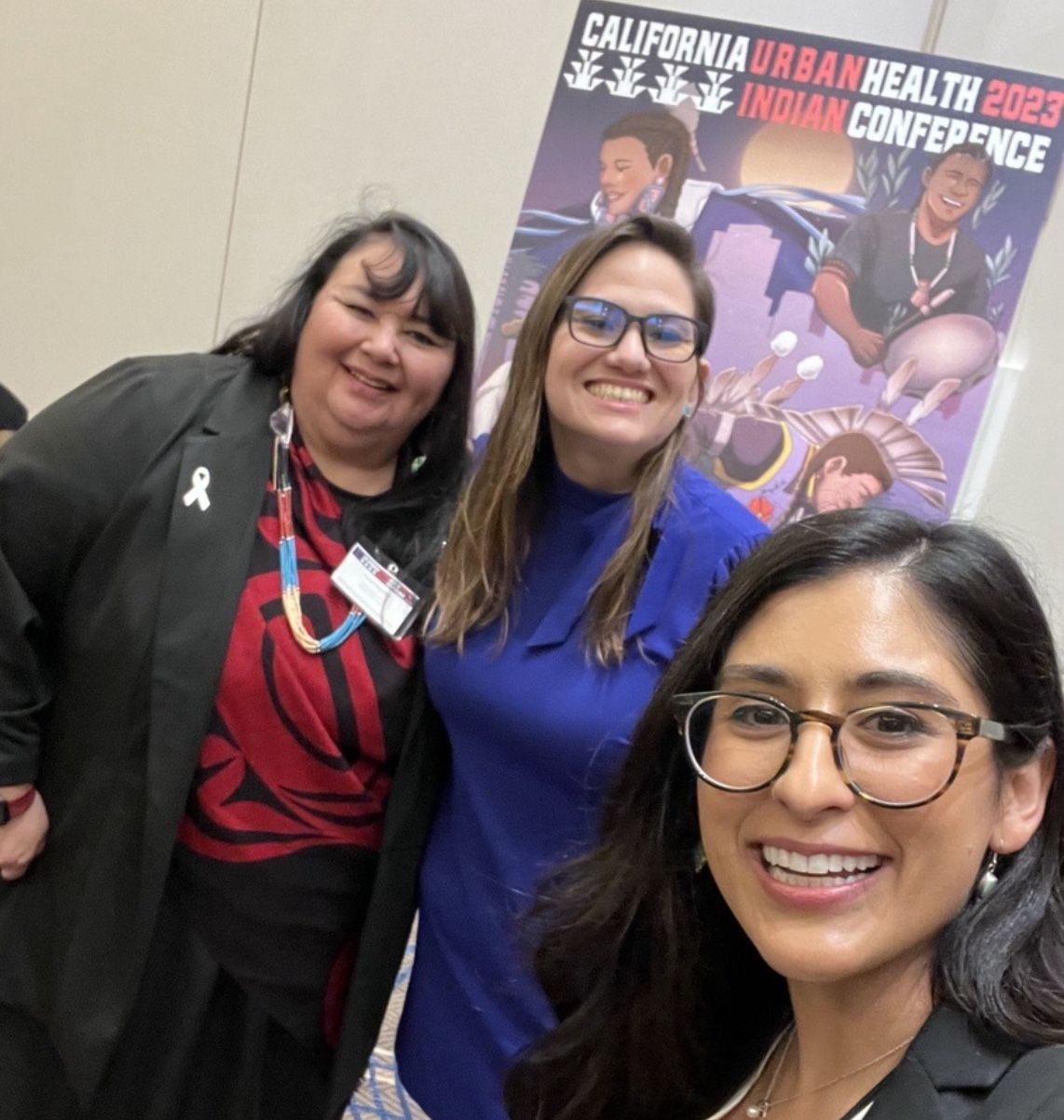
NCUIH CEO, Francys Crevier, alongside Board President Sonya Tetnowski and Federal Relations Manager, Alexandra Payan.
NCUIH CEO, Francys Crevier, gave policy updates at The California Consortium of Urban Indian Health Annual Conference on May 8-9 in Sacramento, California.
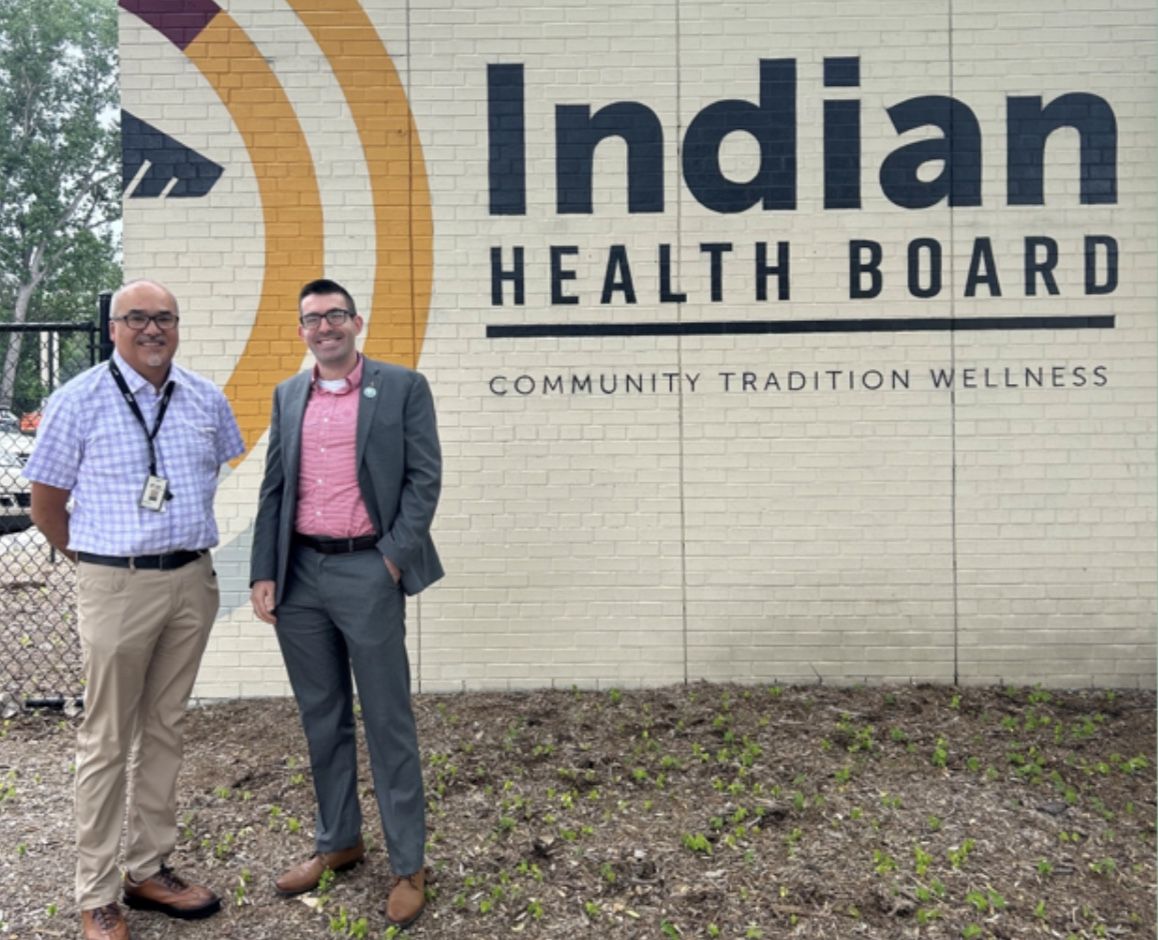
Chandos Culleen, NCUIH Director of Federal Relations, Public Policy visits the Indian Health Board in Minneapolis, Minnesota.
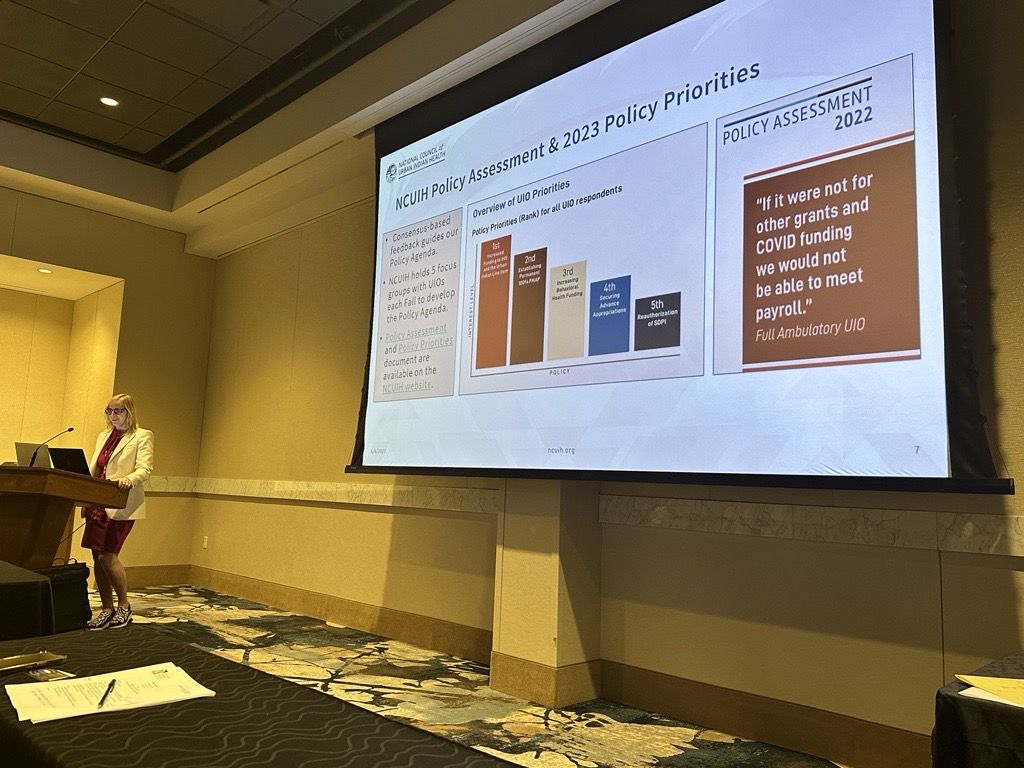
NCUIH Vice President Meredith Raimondi presents at NCAI Mid-Year Conference.
The National Congress of American Indians (NCAI) held its Mid-Year Conference on June 4-9 in Prior Lake, MN where Meredith Raimondi, VP of Public Policy and Communications, gave NCUIH/Urban Indian Health updates. NCUIH also had the opportunity to visit the Indian Health Board.
Congress Passes Legislation to Address the Debt Limit with Advance Appropriations Authority for IHS
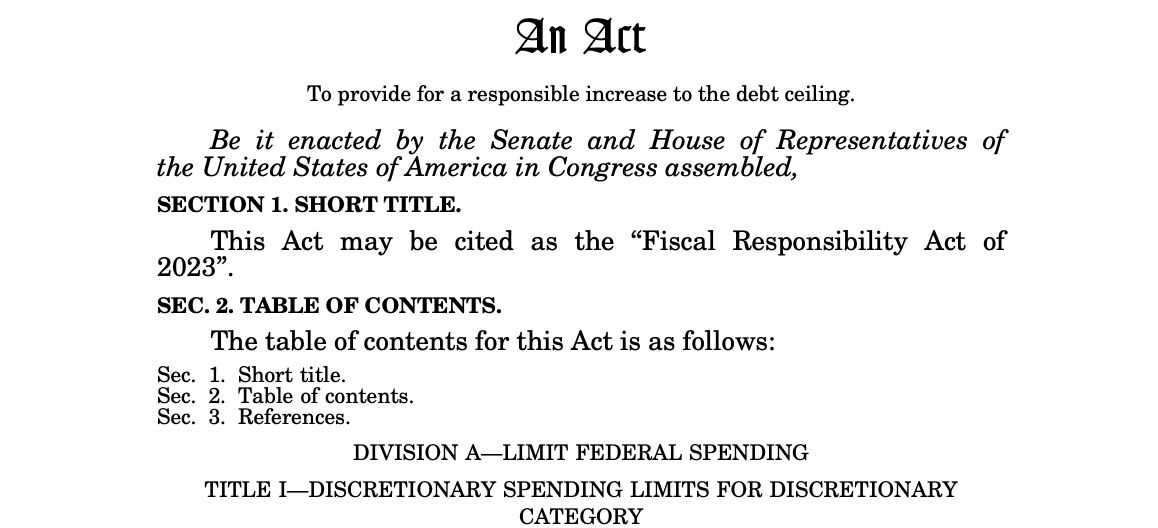
On June 2, Congress passed the Fiscal Responsibility Act (H.R. 3746) to address the debt limit.
- This bill suspends the debt ceiling through January 1, 2025 and includes spending caps on the total amount for non-defense discretionary funding for two years.
Impact on Indian Healthcare:
- Includes “claw backs” of some unobligated COVID-19 funding, however, the American Rescue Plan funding for the Indian Health Service (IHS) is protected from these rescissions.
- The legislation included the budgetary authority to extend advance appropriations for IHS for Fiscal Year (FY) 25 and FY26 but limits the advance appropriation amount for each year to the FY 2024 appropriated amount.
Another thing:
- The deal includes the expansion of certain work requirements for federal nutrition and cash assistance programs but does not include new work requirements for Medicaid.
Special Diabetes Program for Indians & Indian Boarding School Bills Pass Committee
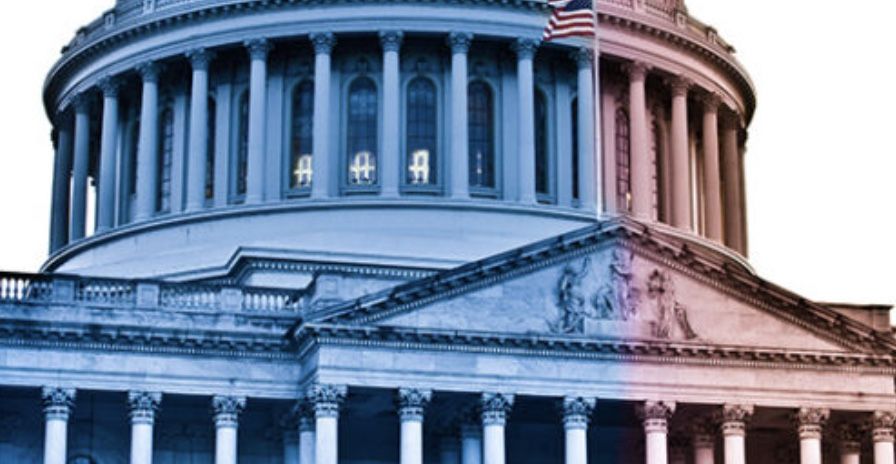
Special Diabetes Program Reauthorization of 2023 (S.1855)
On June 15, 2023, by a 20-1 vote, the Senate Health, Education, Labor, and Pensions (HELP) Committee passed the bipartisan Special Diabetes Program Reauthorization of 2023 (S.1855), introduced by Sen. Susan Collins (R-ME) and Sen. Jeanne Shaheen (D-NH).
Why it matters: The bill would reauthorize the Special Diabetes Program for Type 1 Diabetes and the Special Diabetes Program for Indians (SDPI) at $170 million for FYs 24-25 for each program.
Did you know?: This is the first time the program has seen an increase in funding, as the program has been funded at $150 million annually since 2004, and is set to expire in September 2023.
Bipartisan Letters from the Diabetes Caucus
In March 2023, The House Diabetes Caucus Leaders Rep. Diana DeGette (D-CO-1) and Rep. Gus Bilirakis (R-FL-12) sent a letter to House leadership, and Senate Diabetes Caucus Leaders Sen. Susan Collins (R-ME) and Sen. Jeanne Shaheen (D-NH) sent a letter to Senate Leadership regarding the reauthorization of the program.
The House Diabetes Caucuses letter closed with 238 signatures and the Senate Diabetes Caucus letter closed with 60 signatures.
What they’re saying: “SDPI has been one of the most successful programs ever created to reduce the incidence and complications due to Type 2 diabetes. Communities with SDPI-funded programs have seen substantial growth in diabetes prevention resources, and, for the first time, from 2013 to 2017, diabetes incidence in the AI/AN population decreased each year.”
Go deeper:
- NCUIH Blog on Committee Vote
- S. 1855 – Full Bill Text
- House Diabetes Caucus Letter
- Senate Diabetes Caucus Letter
Truth and Healing Commission on Indian Boarding School Policies Act (S.1723)
On June 7, 2023, the Senate Committee on Indian Affairs (SCIA) held a business meeting where they unanimously passed the NCUIH-endorsed legislation, the Truth and Healing Commission on Indian Boarding School Policies Act (S.1723) with amendments.
Why it matters: This legislation establishes a formal commission to investigate, document, and acknowledge past injustices of the federal government’s Indian Boarding School Policies. The Commission would develop recommendations for Congress to promote the healing of historical and intergenerational trauma caused by boarding schools and provide an environment for Native people to speak about their personal experiences.
What they’re saying:
SCIA Chairman, Senator Schatz (D-HI), highlighted that “for over a century, the federal government knowingly perpetuated violence and trauma with the goal of assimilating Native children by destroying family and communal bonds, their languages, their cultures, and their very identities. The impacts of this shameful history are felt by survivors and their descendants to this day. Without the guidance and support of Native communities across the country on this important bill, a culturally respectful and meaningful path to truth and healing would not be possible.”
SCIA Vice Chairman, Senator Murkowski (R-AL), echoed the importance of the legislation, stating, “This Commission will help document what happened and then develop recommendations on how to heal from these harms. I commend the work of the committee staff and members for their efforts to address the calls for justice by advocates while making bipartisan improvements to the bill.”
What’s next: This legislation has been read twice and referred to the Committee on Indian Affairs.
Go deeper:
NCUIH Provides Comments on FY 2025 Budget & IHS on Health Information Technology Modernization
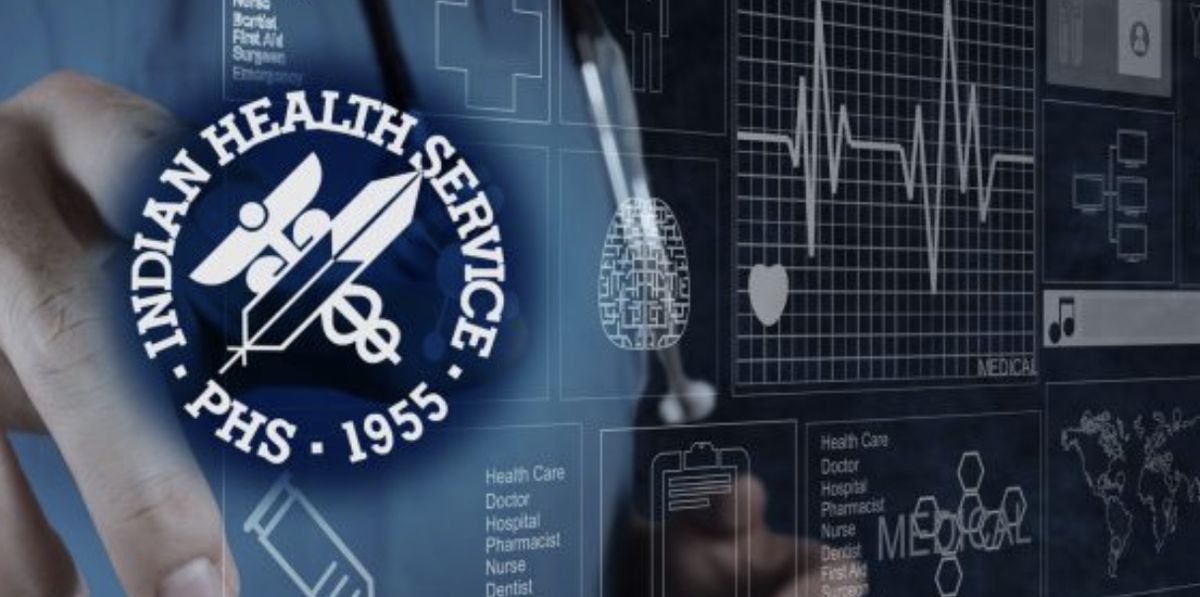
On May 19, NCUIH submitted comments to the Department of Health and Human Services (HHS) on the FY 2025 Budget Testimony. NCUIH provided a comment template for UIOs.
Our thought bubble: NCUIH recommended that HHS take the following actions:
- Propose $965.3 million for the Urban Health line item in the HHS FY 2025 Budget and $53.85 billion for IHS overall.
- Safeguard IHS and UIO funding by proposing mandatory appropriations, exception apportionment for UIOs, and exempting IHS from proposed sequestration.
- Propose a legislative fix setting the Federal Medical Assistance Percentage (FMAP) at 100% for Medicaid services provided at UIOs.
- Propose $80 million for the Native Behavioral Health Resources Program.
- Request permanent reauthorization of SDPI at a minimum $250 million.
- Request a legislative fix permitting U.S. Public Health Service Commissioned Corps Officers to be detailed to UIOs.
- Establish an Urban Confer Policy.
On June 10, NCUIH submitted comments to IHS on Health Information Technology (HIT) Modernization. NCUIH provided a comment template for UIOs.
- Incorporate necessary new capabilities in the modernized Electronic Health Record (EHR) solution.
- Ensure that the new EHR contains the full suite of EHR Capabilities.
- Supports the unique interoperability needs of UIOs.
- Develop a timeline for IHS, Tribal, and UIO facilities to use as a planning base to prepare for the transition to a new system.
- Take all necessary and practicable steps to secure funding for EHR reimbursement.
Upcoming Comments and Submissions:
- June 30 – Comment deadline to Office of Management and Budget (OMB) on IHS Mandatory Funding
- July 3 – Comment deadline to Center for Medicaid and Medicare Services (CMS) on Ensuring Access to Medicaid
- July 3 – Comment deadline to CMS on Access to Managed Care
NCUIH & Partnership for Medicaid Advocate to Protect Medicaid Recipients from Work Requirements
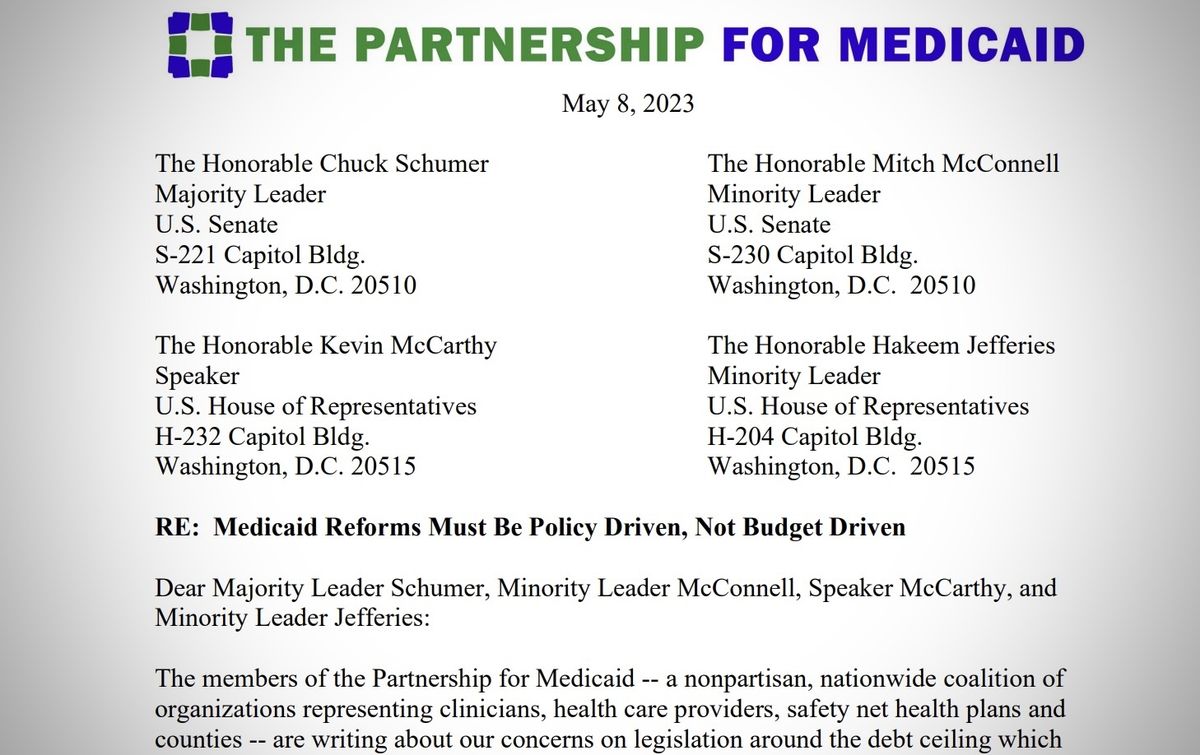
- On May 8, 20223, NCUIH signed on to a Partnership for Medicaid letter to Congressional Leadership expressing concern about work requirements as a mandatory condition for Medicaid eligibility in the debt ceiling bill.
- This letter urges Congress to build on the policies that have enhanced and expanded coverage for the individuals, children, and families enrolled in Medicaid these last couple of years and opposes budget driven changes that would limit eligibility and coverage and cause unintended harm to many beneficiaries.
Go deeper: Read the letter
One Last Thing: Pride Beyond Pride Month

As we celebrate Pride Month this June, we embrace the vibrant tapestry of diversity within the urban Native community, honoring the contributions and resilience of LGBTQ+ individuals and acknowledging the important presence of Two-Spirit people among us. This month, and every day after, we recognize the intersections of identity and strive to create inclusive spaces that empower all members of our community, ensuring their voices are heard and respected. Join us in promoting equality, love, and acceptance as we stand united in the spirit of Pride.
Upcoming Events and Important Dates

Upcoming Events:
- VA extended eligibility for VA health care for certain Veterans of the Vietnam, Gulf War, and post-9/11 eras pursuant to the Sergeant First Class Heath Robinson Honoring Our Promise to Address Comprehensive Toxics (PACT) Act. SUBMIT your PACT Act claim by August 9 to be eligible for backdated benefits back to August 10, 2022.
- July 11 – IHS Meeting on Overview of Updated Policy on Conferring with Urban Indian Organizations
- July 19th- NCUIH Monthly Policy Workgroup Meeting
ICYMI:
- June 26-29- IHS Tribal Self-Governance Advisory Committee (TSGAC) held its Annual Conference.
- June 20-21- IHS National Tribal Advisory Committee (NTAC) on Behavioral Health held its meeting.
- June 14 – NCUIH attended the While House Council on Native American Affairs (WHCNAA), Department of Veterans Affairs (VA), IHS, Housing and Urban Development (HUD) joint AI/AN Homelessness Initiative Workgroup.
- June 2 – NCUIH attended a meeting with Center for Medicaid and CHIP Services (CMCS) to discuss the Medicaid Unwinding Process and its impact on vulnerable communities.
- May 10 – IHS held Tribal Consultation (TC) and Urban Confer (UC) on IHS Health Information Technology Modernization Resources. Comments were submitted June 10. There will be two more TC/UC in August and November of this year.
Thank you for all your hard work and advocacy!



Leave a Reply
Want to join the discussion?Feel free to contribute!